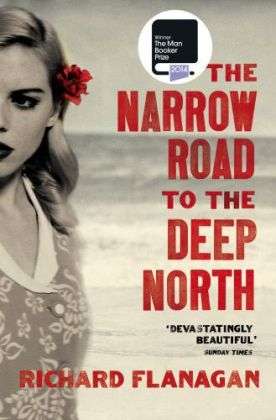

At moments throughout the story, books and poems become talisman. The story does turn on the power of a poem or a letter, and this power of language, or literature, is returned to with a rhythm that is poetic. Over and over." This moment a presentiment of the kind of man he becomes, a womaniser who returns to the arms of women over and over as both the novel and Dorrigo speed towards their end. His experience of maternal love is bathed in sunlight: the "transcendent welcome" of the arms of women "like entering the sea and returning to the beach.

The descriptions of Dorrigo's first beautiful experiences are of light: the boy's first game of football, where he leaps into the sun to take a mark, seems to take on an almost religious significance. Dorrigo says of words, "They were the first beautiful thing I ever knew." This is something the story contradicts, but he is a character prone to deceptions. There is also another love story here – the novel is a love letter to literature. Although this love forms the beating heart of the book, Flanagan doesn't let it lie instead he takes the reader beyond this, exploring what it means to love a family, to love a friend, to love at all. The love of Dorrigo's life, Amy, his uncle's young wife, is a love that is illicit, that falls with a vertiginous sickness one hot, salty summer before Dorrigo ships out. In opposition to this hellish setting, much of the novel unfolds as a love story of epic, Grecian proportions, set in beachside Adelaide. The Narrow Road to the Deep North is dedicated to Flanagan's father, prisoner san byaku san ju go (335), the Japanese number given to him as a PoW, one of Weary Dunlop's thousand on the death railway. The book is a howl into the silence of returned servicemen, often told that it is better to forget, to return to life as if nothing has happened – despite the "lest we forget" refrain.

They are unrelenting – the naked, skeletal bodies, the moon eyes, and the hats set at a larrikin angle above these distorted faces evokes a hellish theatre. To read the passages describing life on the line is to endure. The telling of the experiences of Dorrigo Evans, the main character, as a doctor in a prisoner-of-war camp on the line, is disturbing and vivid.


 0 kommentar(er)
0 kommentar(er)
